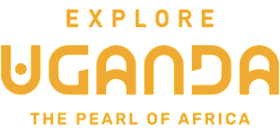 Uganda Showcases Tourism and Trade Potential at Havana’s Leading Economic Fair
Uganda Showcases Tourism and Trade Potential at Havana’s Leading Economic Fair
Uganda is positioning itself as a dynamic tourism and investment destination at the 41st Havana International Fair (FIHAV 2025), a hallmark event on Cuba’s economic calendar. Taking place from 24 to 29 November at Expocuba in Rancho Boyeros, the fair draws together a global mix of public and private enterprises, as well as diplomatic missions, to explore new avenues of trade, collaboration, and sectoral innovation.
The Ugandan Embassy in Havana is making the most of this platform, presenting the country’s strengths to a diverse international audience. Their stand, a vibrant showcase of Ugandan agricultural products, traditional crafts, and tourism promotional materials, is designed to capture the interest of Caribbean and Latin American stakeholders. By highlighting these sectors, Uganda is not only promoting its rich culture and natural beauty, but also signaling its readiness for deeper commercial partnerships and cross-continental investment.
Ugandan diplomats at FIHAV are actively engaging with trade representatives, exporters, and sector specialists from various countries. These interactions are opening new dialogues around tourism, agriculture, manufacturing, and other growth industries. The Embassy is particularly focused on forging pathways for Ugandan products to enter new markets, a move that could have significant long-term benefits for the country’s exporters and producers.
Participation in FIHAV aligns with Uganda’s broader strategy to deepen bilateral trade relations and expand its market footprint beyond Africa. The Embassy’s efforts are geared toward attracting investors and business partners from the Caribbean and Latin America—regions that offer untapped potential for Ugandan goods and services. The fair’s multi-sectoral nature makes it an ideal venue to introduce Uganda’s value propositions, from its scenic national parks and unique wildlife experiences to its burgeoning agricultural and manufacturing sectors.
The significance of FIHAV 2025 is heightened by Cuba’s ongoing economic challenges, including the enduring effects of the international blockade. Despite these pressures, the fair remains the island’s most important platform for international economic engagement, drawing delegations and companies from around the globe. This year, the spotlight is on renewable energy, artificial intelligence, tourism development, and the promotion of national export products, reflecting global trends and Cuba’s energy transition agenda. For Uganda, these themes offer opportunities to showcase its progress in sustainable tourism, green agriculture, and innovation-driven sectors that align with Cuba’s priorities and the wider region’s development goals.
Countries such as Canada, China, Guyana, Indonesia, the Bahamas, Trinidad and Tobago, and Russia are also represented at FIHAV. Their presence underscores the fair’s role as a regional nexus for international trade and cooperation. For Uganda, engaging with such a broad spectrum of partners is an opportunity to strengthen its diplomatic ties and explore new business models, particularly as African economies look to diversify their export destinations and investment sources.
Since its inception in 1983, FIHAV has evolved into one of the largest and most influential trade fairs in Latin America and the Caribbean. Its growth has mirrored the expanding ambitions of participating countries, with each edition attracting greater numbers of exhibitors, visitors, and investors. For Uganda, the event is more than a marketplace—it is a strategic platform to amplify its international profile, position its tourism industry for growth, and secure new commercial links that can drive economic transformation at home.
As the Ugandan Embassy continues its efforts throughout the week, there is a clear sense of momentum. Dialogues with sector specialists are uncovering new collaboration areas, from adventure tourism packages tailored to Caribbean travelers to agricultural supply chains that connect Ugandan producers directly with Latin American markets. The Embassy’s proactive approach is also helping to identify opportunities for knowledge exchange in renewable energy, leveraging the fair’s focus on sustainability to bring home best practices that can support Uganda’s own green transition.
For African tourism professionals, Uganda’s participation at FIHAV 2025 is a timely reminder of the value of international trade fairs for market expansion and partnership building. As global tourism and investment flows become increasingly competitive, it is essential for African destinations to maintain a visible presence at events that bring together key decision-makers and influencers from across continents. Showcasing authentic products, building diplomatic bridges, and adapting to emerging trends such as renewable energy and digital innovation will be crucial for the continent’s tourism and trade sectors in the years ahead.
The ripple effects of Uganda’s engagement in Havana are likely to extend beyond immediate trade deals. The exposure gained at FIHAV can enhance the country’s reputation as a reliable partner and a destination with untapped economic potential. It also sets a precedent for other African nations to leverage similar platforms, strengthening the region’s collective voice in global trade arenas and ensuring that Africa’s unique offerings are recognized and valued in international markets.
As FIHAV 2025 unfolds, Uganda’s active participation highlights a broader shift in African strategy—one that prioritizes international engagement, sectoral innovation, and the continuous pursuit of new growth frontiers. For tourism and trade professionals across sub-Saharan Africa, the message is clear: the time is ripe to look beyond traditional markets, invest in strategic promotion, and build partnerships that will define the continent’s economic trajectory for years to come.
